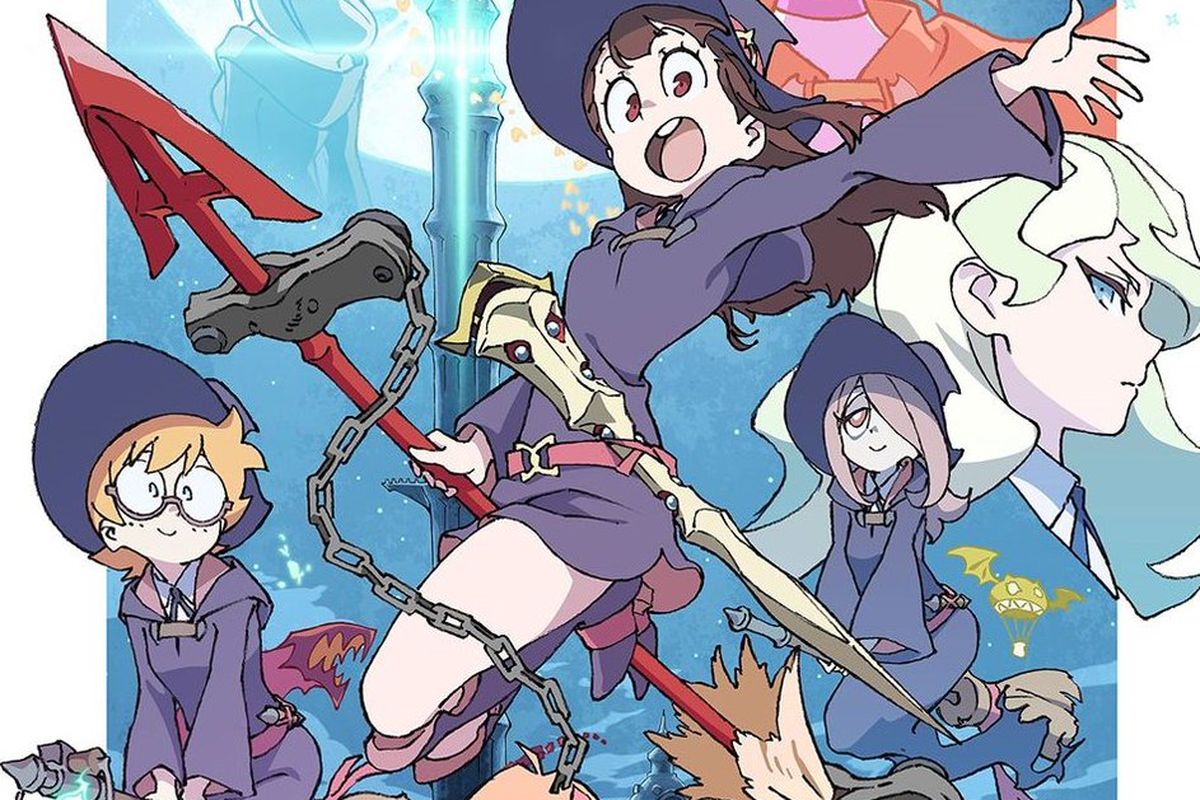An anime about young girls who learn magic. The name alone gives the impression that it will be childish, but, trust me, Little Witch Academia (LWA) is special.
I should never have questioned the wonderfully bizarre TRIGGER – a studio who have previously made Space Patrol Luluko and Kill La Kill – so there was always a chance that they could inject their zany style. But still, an anime about young girls learning magic was always going to be a hard sell to an audience outside of a typical young girl demographic.
Even the unlikely story of LWA’s creation, like the anime itself, is magic.
The anime started off in 2013 as a one-off special but quickly established a fervent fanbase, warranting the creators to launch a Kickstarter campaign. Yet, even after a second movie, fans had yet to be satiated, leading to the creation of a 25-part anime series.
Straight from the first episode, LWA is visually delightful, delivering high end animation that would not seem out of place in an OVA. Vibrant colours fly off the screen in every direction, and characters come to life through exaggerated facial animations.
LWA’s constant quirkiness works as it does not take itself seriously, enabling unbelievable tribute scenes to shows such as Gurren Lagann or subtle blink-and-you’ll-miss-it references such as one to Neon Genesis Evangelion.
For instance, in the first episode, Akko, the lead character, falls asleep during one of her classes after becoming bored. In this moment, her friend tips a potion into her hair and a little flower sprouts. Its cute, clever and a moment that wouldn’t have occurred in most anime but TRIGGER excel at filling every second with memorable moments.
Humour plays an important role within the series and is regularly injected into scenes. Even though humour often come at Akko’s expense, it is usually due to her unwavering desire to stick to her plans and work towards making her dreams reality.
I love that we get to watch Akko grow throughout the series and, even though she is often mocked for her mistakes, her classmates and teachers slowly begin to respect her as she accomplishes numerous difficult feats.
Even better, the large cast of characters are regularly utilised. Whether it is the tech loving Constanze or wild child Annabel, they all get their moment to shine and they are all equally lovable in their own unique way.
My favourite is Lotte, Akko’s best friend, who could have easily have been played off as a one-dimensional timid bookworm, but she is anything but this. Lotte always stands up for what she believes in and, in one episode, geeks out over her idol, not caring if anyone else thinks she is a nerd.
https://www.youtube.com/watch?v=372SRI-tDJ8
Unfortunately, these episodes are primarily interwoven into the first part of the series as the second half focuses more on Akko’s quest to collect the seven words of power. It is during this time that the show takes a slight dip in quality.
The reason why this dip occurs is due to the inclusion of a villain called Croix, who regularly appears between episodes 13-25, weaving in and out of storylines, but never improving any scene in which she appears.
Her inclusion feels peripheral, forced, and never fitting in with the high-spirited nature of the world that has been created. This is not to say that these episodes are bad. Far from it. It’s just jarring to watch these sweet characters fighting against someone with a nefarious motivation.
That being said, even though Croix’s presence is often akin to a damp cloth, the animation in these scenes borders on unbelievable. TRIGGER know how to pull of the spectacular and none more so than scenes that require the action to ramp up as it reaches a crescendo.
Another reason why the show works is due to Michiru Oshima’s fantastic soundtrack. The music is a smorgasbord of different styles, changing up just as regularly as the anime itself. Sometimes the soundtrack soars and other occasions it hits a sombre tone, but, regardless of the type of orchestration, the music is consistently wonderful.
One criticism that has been regularly levied at the anime is that it suffers from ‘pacing’ issues, a comment I disagree with completely. LWA has a narrative thread that runs through the entire series, but these are only a minor element of the show.
The anime has been designed so that most episodes can be self-contained, rather than flowing from one episode to the next. It fits the needs of LWA perfectly by allowing the creators to explore wild themes from various genres without becoming incohesive. Episodes focused on giant mecha, the dead rising or Finnish yeti would not have been possible if the show adhered to a strict, logical timeline and I am grateful that this type of structure was chosen.
Sadly, it is currently unclear whether LWA is likely to receive another series as it was designed to be a precursor to the previous films and TRIGGER’s has an unfortunate track record of not making second series.
Here’s hoping the little witches make it back sometime soon.
Some of the coverage you find on Cultured Vultures contains affiliate links, which provide us with small commissions based on purchases made from visiting our site.

